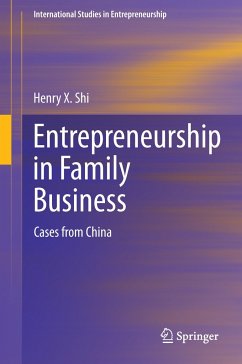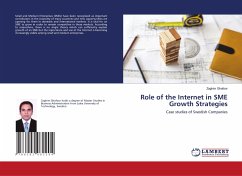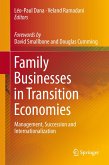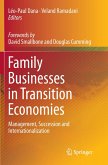This book presents an excellent analysis of how a family business is different from other forms of organization and especially its peculiarities in relation to entrepreneurship. Focusing on small and medium-sized second-generation Chinese family businesses this book provides an in-depth analysis on the relationship between the firms' family attributes - or "familiness" as conceptualized in this book - and entrepreneurial processes, which leads to different outcomes. Eight cases from China are presented in this book and a dual-level approach is proposed for research on entrepreneurship in family businesses, emphasising both firm processes and the role of individual owner-managers. Readers will also find several useful policy and practice-oriented perspectives in this book.
Bitte wählen Sie Ihr Anliegen aus.
Rechnungen
Retourenschein anfordern
Bestellstatus
Storno








